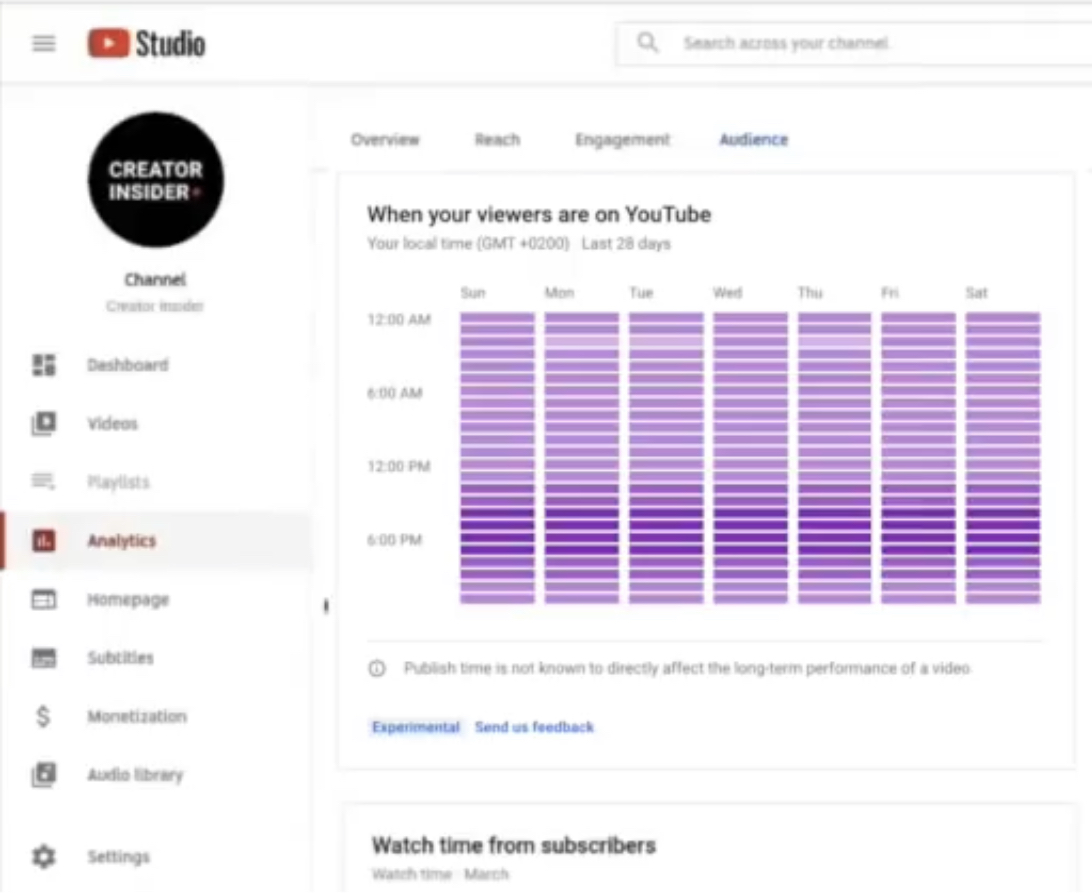YouTube is expanding its analytics capabilities by showing video creators when their audience is most likely to be online.
This upcoming feature was previewed in the latest video on YouTube’s Creator Insider channel.
In the video a member of YouTube’s analytics engineering team gives a detailed walkthrough of how to navigate the new data.
Recommendations on how to best use the data are provided in the video as well.
Here’s a recap of YouTube’s presentation on this first-ever addition to its analytics platform.
New Data: When Your Viewers Are on YouTube
YouTube always gave creators access to basic demographics data like age, gender, location, and those kinds of things.
This new set of data increases the level of insight and understanding of the audience far beyond the basic demographics.
Oftentimes basic demographic information isn’t directly actionable.
YouTube analytics engineers are always looking to find ways to give creators more data they can actually use to grow their channel.
Their latest project, which is now in the early stages of development, is the ability to let creators know when their audience is online.
More specifically, the data will pinpoint which hours during the week a channel’s audience is most active.
Here’s an example of what the data looks like in the YouTube Studio analytics dashboard.

In the chart you can see how each block of time is represented by either light purple or dark purple.
The darker the boxes get, the more your audience is online at a given time.
In this particular example, the chart indicates that the channel’s audience is consistently online throughout the day.
The dark purple time blocks indicate the channel’s audience is most active on YouTube between 4pm and 8pm.
To be clear, this is not necessarily indicative of when people are watching the channel itself.
This data indicates when a channel’s audience is most active watching any videos on YouTube.
The reason why the data doesn’t represent when a channel’s own content is being watched is because it would be heavily skewed toward the channel’s publishing times.
Showing when an audience is most active on the YouTube platform in general is likely to be more useful to video creators.
How to Use This Data
You might immediately assume the best way to use this data is identifying the best times to publish videos according to when your audience is most active.
However, YouTube is reluctant to say whether or not scheduling videos during the darkest areas of the chart will impact a channel’s long-term performance.
“We don’t quite have the data confidence to say that,” says a member of YouTube’s analytics engineering team.
According to the company, it’s hard to get conclusive evidence demonstrating the best times to publish a video.
What this data can do is help channels engage with their community by scheduling posts when their audience is most active.
Channels may also benefit from using this time to respond to video comments or find other ways to engage with their community.
Another tactic that could be especially effective is broadcasting live streams when most of your audience is online.
YouTube recommends following those suggestions over using the data to determine when videos should be published.
“We’re not confident that you should be tailoring your upload schedule to this, or your publish schedule to this, using it in other ways can help you build that rhythm with your audience.”
Of course, there’s nothing to stop you from scheduling videos when your audience is most active if you want to test it for yourself.
Again, this feature is currently in early development and not yet publicly available.
See the full preview in the video below:





![AI Overviews: We Reverse-Engineered Them So You Don't Have To [+ What You Need To Do Next]](https://www.searchenginejournal.com/wp-content/uploads/2025/04/sidebar1x-455.png)